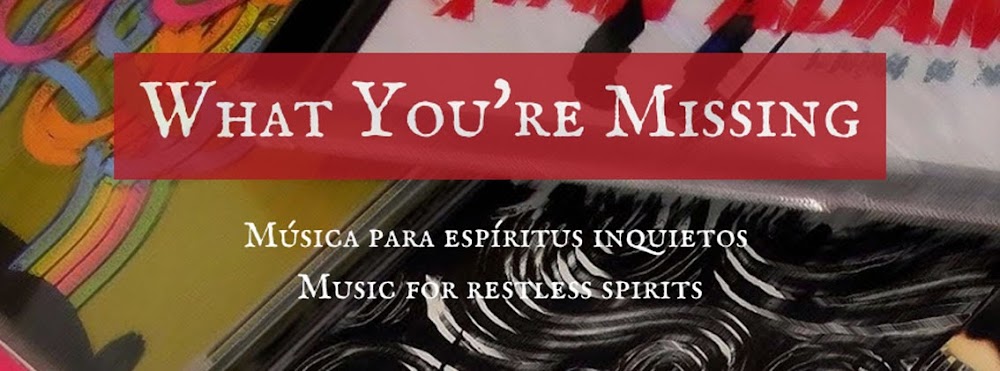LII
"T'estimo, sí, potser amb timidesa, potser sense saber-ne. T'estimo."
AMOR PARTICULAR
Lluís Llach
Lluís Llach
T'estimo
Ariola
1984
(ENGLISH AHEAD) Durante mucho tiempo escuché esta canción imaginando a quién podía estar dedicada. De su letra se desprendía fácilmente una declaración de amor y de agradecimiento. Mis lectores sabrán de mi predilección por el tipo de canciones que sirven para dar las gracias... pero en ésta había algo más que la hacía "particular". En todo momento asistía a lo que para mí era un monólogo sincero y calmado sobre el amor que el cantante le profesaba a su pareja. Ni que decir tiene que esa "particularidad" de la relación alimentaba las interpretaciones -algunas bien y otras malintencionadas- sobre la naturaleza de ese amor. Yo era uno de esos quería pensar en una declaración de amor prohibido. Sin embargo, en un giro repentino, la canción hablaba de una despedida y ausencia necesaria, y eso me desconcertaba, pero me contentaba pensando que no era más que una licencia en un poema que afrontaba la desaparición del ser querido desde una, de nuevo, particular actitud de esperanza y confianza en el futuro.
Mientras pensaba en todo ello, me conmovía con la suave y tímida voz de Lluís Llach comenzando los primeros versos, con la delicadeza de las notas y ese crescendo de piano y violines que alcanzaba un momento preñado de arrebatadora emoción: "que jo....", para terminar susurrando... "t'estimo". Ni un solo día he dejado de sentir ese estremecimiento cada vez que he escuchado esta canción.
Años más tarde supe, y entendí, que la canción no iba dirigida a nadie en concreto, sino a todo su público, con el que había mantenido esa relación tan particular durante tanto tiempo, y al que nunca le había dado las gracias por estar ahí. Llach plasmaba por primera vez su sensación ante el día que dejara los escenarios y esa relación con su público terminara, como así ha sido.
Una vez entendidas las motivaciones, todo tiene sentido. Sin embargo, la canción está ahí para que cada uno la haga propia y, adueñándose de su espíritu, la transforme en lo que quiera. En el fondo, yo nunca he querido descartar mi primera impresión, y por eso para mí siempre será el mejor regalo que jamás pueda hacerle a mi amor particular.
Aquí un vídeo con la traducción al castellano.
For a long time I listened to this song trying to guess who it was dedicated to. The lyrics clearly showed a declaration of love and gratitude. My readers already know about my predilection for songs about being thankful... but in this one there was something else that made it so "particular". It seemed as if I was listening to an honest and calm monologue about the singer's devotion for his lover. Clearly, the "particular" in the title made every well and bad-intentioned interpretation about the nature of this love arise. I was one of those who liked to think of it as a declaration of a love that was forbidden. But suddenly, the song shows a disturbing turn, as it goes to speak about a necessary parting and absence, but I used to think it was just a poetic licence to show a particular feeling of hope and faith in the future over the incidental loss of the beloved one.
While thinking about all this, I used to be touched by the soft and timid voice of Llach singing the first lines, the delicate notes and the crescendo with piano and violins that reached a summit of captivating emotion: "that I...", to rush down to almost a whisper: "I love you". Never have I ceased to feel such shiver since the first time I listened to this song.
Years later I learned, and understood, that it was not addressed to anyone in particular, but to his own audience, with whom he had been having such a strong relationship, and whom he had never been thankful to for being out there for so long. Lluís Llach was showing his first feeling of worry by the thought of the time when the Catalan singer-songwriter would have to stop getting on stage and sing for his fans, as it has eventually happened.
Once all interpretations are clear, the song is out there for all of us. Anyone can own it, capture its spirit and make anything one wants of it. I never really ruled my own impression out, that is why I will never find a better gift to give to my particular love.
Here's a video with the translation of the song into Spanish
Enlaces/Links:
Página web oficial: www.lluisllach.cat







